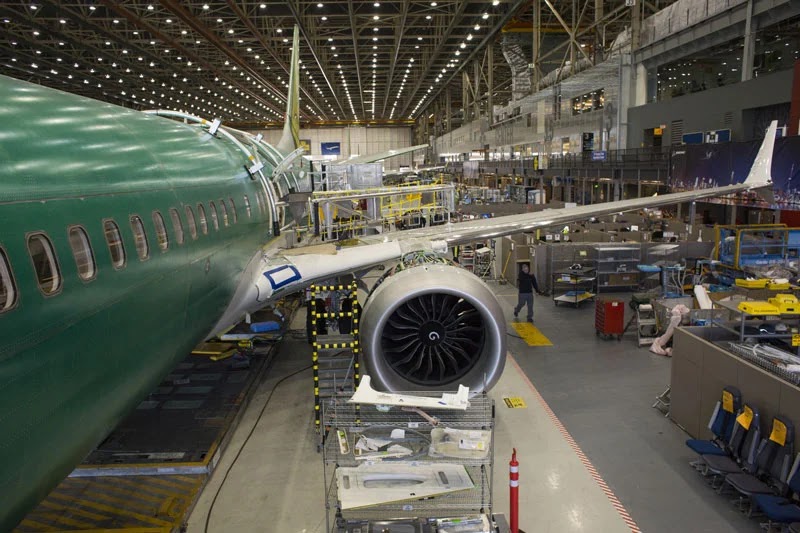ARLINGTON, TEXAS — According to recent data, Boeing fell short of its production targets for the 737 jet in 2022 by producing only 25 jets per month. This outcome was likely due to a combination of supply chain and labor difficulties that plagued the company throughout the year.
Despite initially aiming to increase production to a rate of 31 jets per month, Boeing was unable to maintain this pace in the face of ongoing challenges. While the company has not publicly released specific production figures, executives did confirm in July 2022 that they had achieved the 31-per-month goal at that time but warned that output would likely fluctuate in the future.
A recent report from financial firm Jefferies estimates that Boeing's production rate of the 737 jets last year was in the "mid-20s" on a monthly basis. This estimate is based on the number of 737 fuselages shipped by Spirit AeroSystems, a major supplier of fuselages to Boeing, to the company in the course of the year. According to Jefferies, these shipments provide valuable insight into the production rates at Boeing.
Wichita-based Spirit AeroSystems delivered 306 737 fuselages to the American aircraft manufacturer in 2022, averaging 25.5 aircraft per month. However, it is worth noting that the company's deliveries decreased over the course of the year, with a high of 89 in the first quarter and a low of 69 in the fourth quarter.
The company may announce details about its 2022 production when it releases its 2022 financial results on Jan 25. Though Boeing's production remained constrained in 2022, it did meet its target of delivering 375 737s in 2022.
Despite production constraints and supply chain challenges, Boeing managed to surpass its delivery target for the 737 aircraft in 2022, with a total of 387 copies delivered to customers. This equates to an average of 32 deliveries per month, with the total including both newly manufactured planes and previously grounded 737 Max models. The company faced difficulties in recruiting and retaining enough workers, as well as obtaining sufficient quantities of key components, including the CFM International Leap-1B turbofans used in the 737 Max. Additionally, there were reported issues with the overall quality of 737 manufacturing.
Airbus experienced difficulties with its supply chain in 2022, leading to the company delivering 40 fewer aircraft than it had originally planned. At the Airline Economics Growth Frontiers Dublin conference on Jan 16, industry leaders from two major aircraft leasing companies stated that these production shortfalls are likely to continue.
Air Lease executive chair Steven Udvar-Hazy stated that both manufacturers are struggling to meet their contractual commitments, citing challenges with obtaining enough engines, titanium, forgings, and landing gear. He also mentioned that these difficulties extend to small suppliers in the supply chain.
AerCap CEO Aengus Kelly added that Airbus had overestimated its delivery capabilities.

